[2024] Shopify vs Volusion: Which is Best?
Shopify vs Volusion: Background
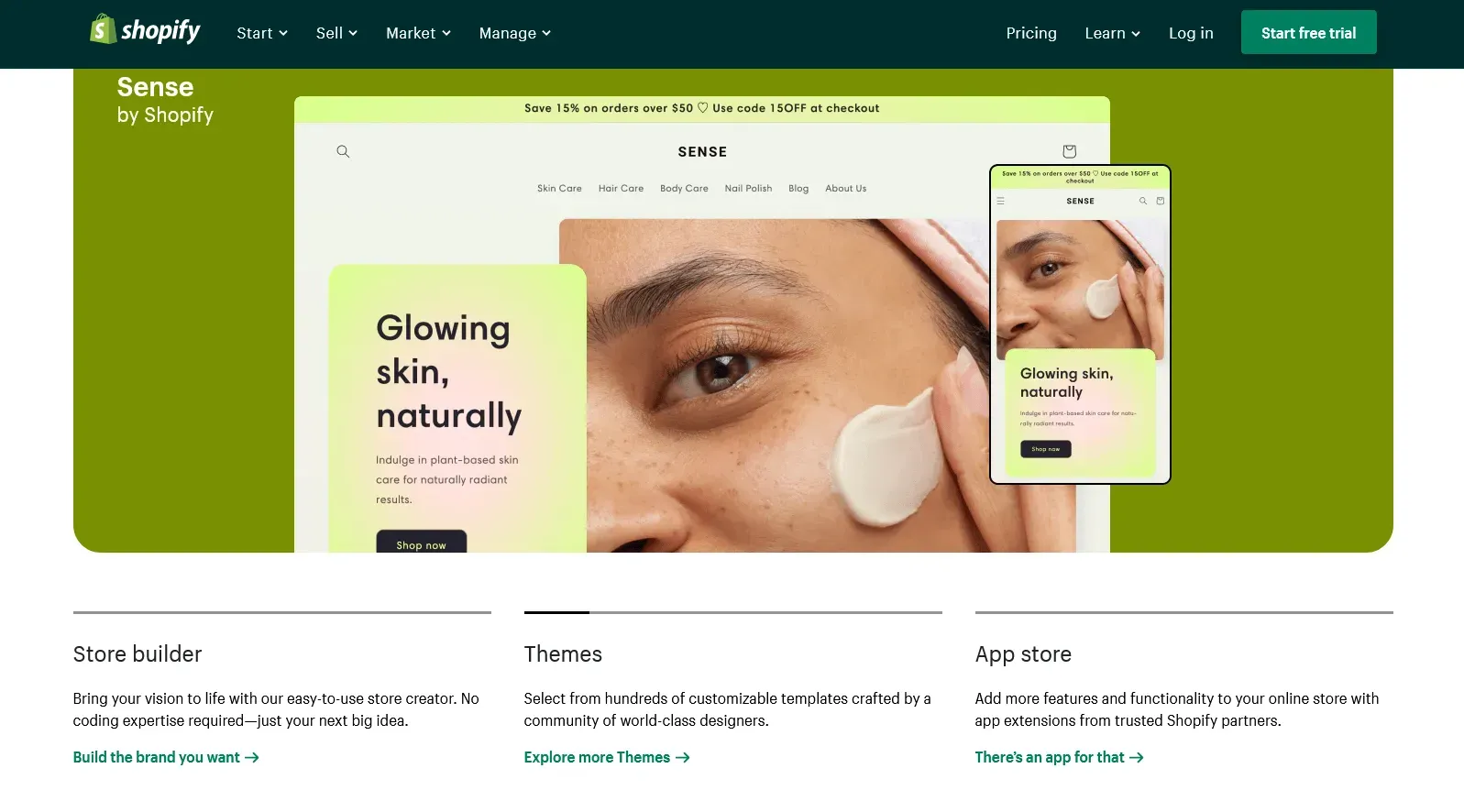
Shopify started life in Ottawa in 2006. It was designed as a complete ecommerce solution for aspiring store owners looking for an easy way to build a store out of the box without hiring a team of developers.Released at a time when ecommerce was just taking off, it has grown every year since and, in particular, saw phenomenal growth during the pandemic in 2020 and 2021.Now it’s widely regarded as one of the best ecommerce solutions around — not only for large, high-turnover stores and established brands like Gymshark, Jenny Craig, Red Bull and Kylie Cosmetics but for smaller boutiques, dropshippers and growing stores.Over the years, Shopify has developed into more than just a store builder. It’s a true multi-channel solution provider, helping with content creation and marketing as well as syncing offline stores with their online counterparts.

Similar to Shopify, Volusion provides aspiring ecommerce entrepreneurs with store builder templates, a content management system (CMS), hosting, payment processing and support. The platform started life in California in 1999 and was founded b 16-year-old, Kevin Sproles, as a web design company.It had a few years' head start on Shopify at the very beginning of the ecommerce boom. Since then, Volusion has relocated to a new HQ in Austin, Texas, and enabled over 250,000 entrepreneurs around the world to build stores.The Volusion team’s main mission is “building fast, flexible, and reliable digital commerce” and this is largely targeted at small- and medium-sized stores.
Shopify vs Volusion: Market share
Shopify has over 4.1 million live stores across the world. This includes 2.7 million stores in the U.S., over 21,500 of the world’s top one million websites and almost 400 of the world’s leading 10,000 websites.These figures make Shopify an undisputed market leader with a strong presence worldwide. It boasts Shopify merchants in more than 175 countries — well beyond the walls of the U.S. By comparison, Volusion currently boasts just over 7,500 live stores, the vast majority of which (over 7,000) are in the U.S. and Canada. Just seven of the world’s leading 10,000 websites use Volusion.While Shopify can claim to provide 5.9 percent of all content management systems currently used on the web, Volusion does not register on this and is usually included as “others” in market share charts.
Shopify vs Volusion: Main features
Successful ecommerce stores have many moving parts,To achieve a winning formula, you need an ecommerce platform that creates a seamless shopping experience and encourages customers to return again and again.So, besides a good choice of templates to provide the look and feel you want for your brand, you need tools to manage the back end seamlessly, as well as assist with marketing, order fulfillment, reporting and customer support. Volusion has been around for over two decades and Shopify not too many years fewer. Both platforms have learnt to incorporate many of the key drivers of ecommerce success and have simplified the process of getting started so that you need little technical know-how.Unless you need a customized solution, you can be up and running very quickly with your new store.Let’s have a quick look at the main “standout” features for each platform so that you can easily differentiate between them.
Standout features of Shopify
Enhanced sales featuresShopify includes enhanced sales features so that stores can sell across multiple sales channels while centralizing the management of the business. The platform has recently focused increasingly on international cross-border selling online — and integrating that with brick-and-mortar stores locally.All plans except the Starter plan provide a sophisticated point-of-sale (POS) option with free hardware/software for offline stores (no third-party apps are required) and automatic inventory syncing through its secure cloud system.
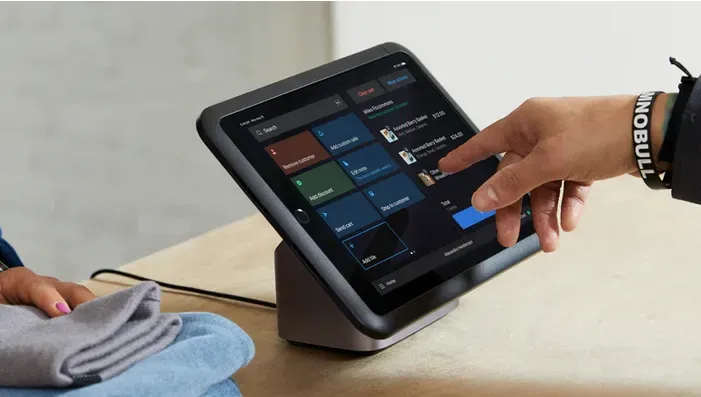
With its tools for social media, it’s also easy to start selling on Facebook and Instagram, as well as Amazon, Walmart, Google, Pinterest, Snapchat, and in-person.Shopify is also geared up for selling internationally with a host of payment gateways compatible with Shopify (more about this below), an impressive multilingual setup and the ability to sell in multiple currencies out of the box.Design and feature flexibilityIf you can’t get the exact look and functionality you need from your Shopify store, you may not need a developer.The Shopify app store contains over 6,000 apps to help with store design, marketing/conversion, finding products, selling products, orders/shipping and store management.These apps allow you to tweak almost everything in your store and most are easy to install and integrate.
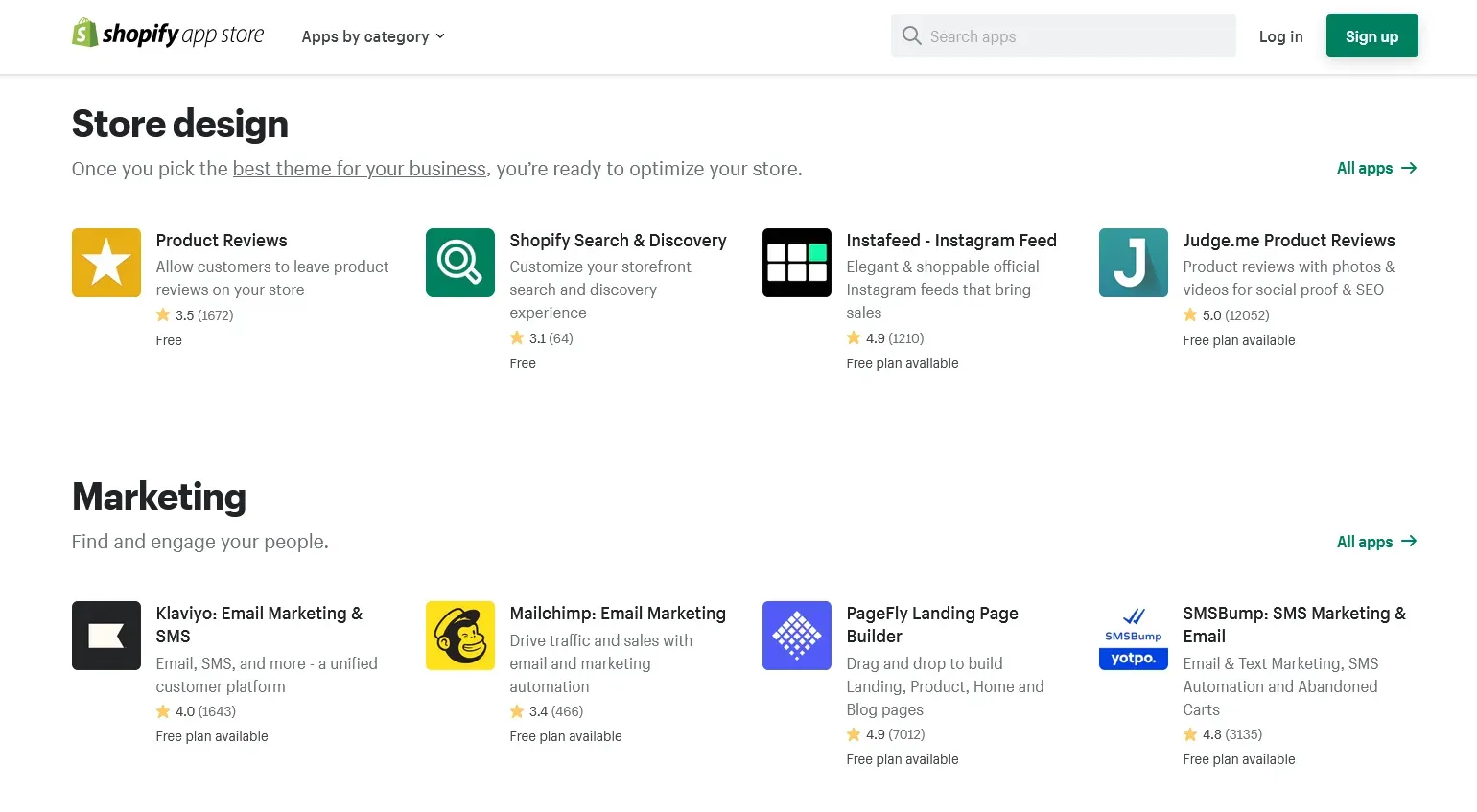
The flexibility and additional functionality provided by Shopify are tough for other ecommerce platforms to compete with — including Volusion.Multiple payment gateway options for customersIn addition to its payment gateway (Shopify Payments powered by Stripe), you can choose from over 100 other payment gateways for accepting customer payments—from Google Pay to Bitcoin.Shopify payments is available in 20 countries around the world, so there’s a good chance that your store can escape transaction fees using this option (more about this in the pricing section below).Blog functionalityShopify provides users with blog functionality directly from the platform rather than having to “tag” a blog onto your store and pay for hosting elsewhere.

Quick-loading pagesNobody likes slow pages. Shopify store pages load fast and the importance of this should not be underestimated as slow pages quickly kill the customer experience and damage performance in the search engines.Shopify also provides a store speed report that can help you further optimize load times. Sell any type of productWith Shopify, there are no restrictions on the type of product you can sell: physical products, digital products, subscriptions or services.
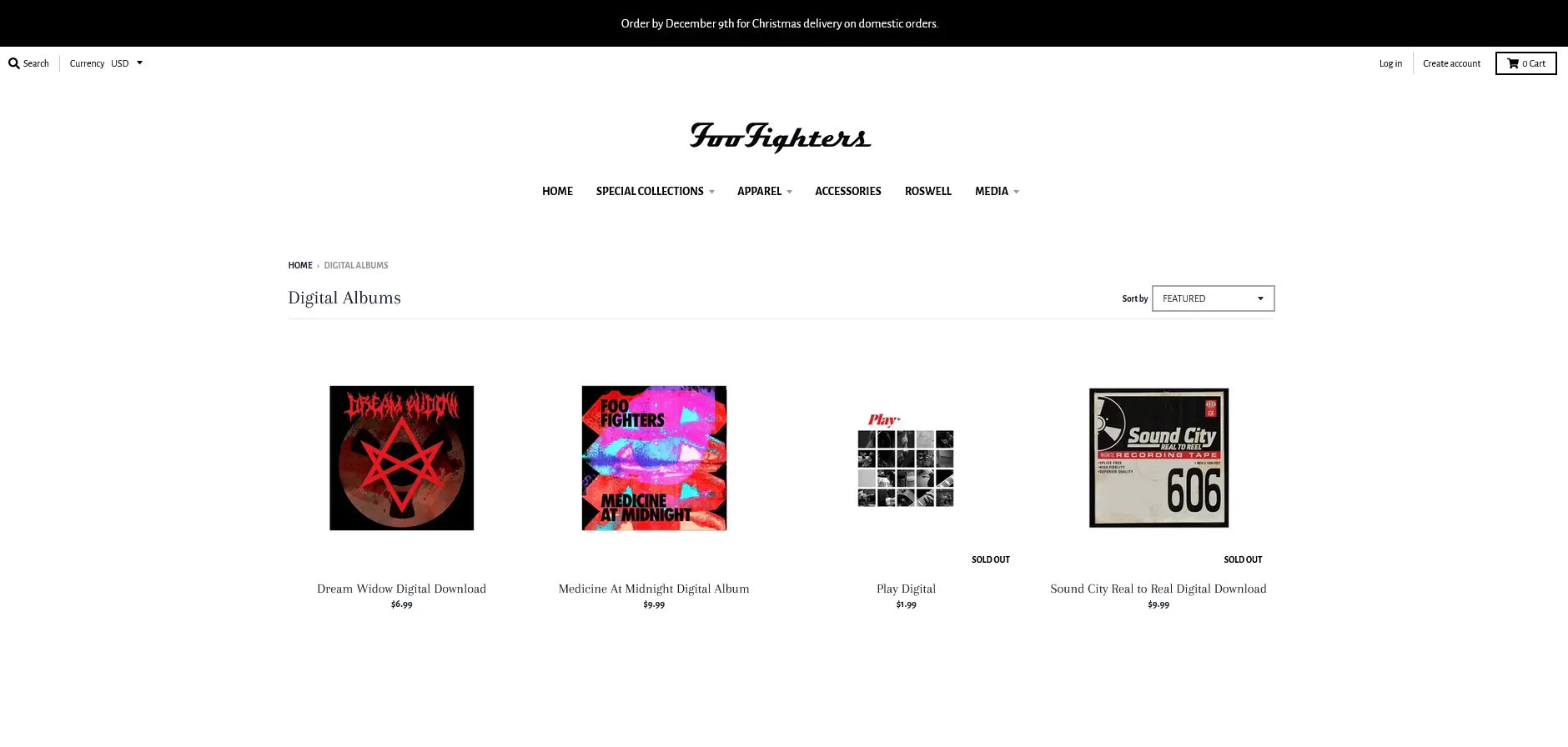
This gives it an important advantage over Volusion, which only accommodates physical products. — no downloadable products or subscriptions.
Standout features of Volusion
I’ll be honest. There are not many areas where Volusion outdoes Shopify — but here are a few possible exceptions:Easy-to-use editor/interfaceThe Volusion platform incorporates a simple drag-and-drop style editor, which lets you add and move blocks around pages. Shopify largely uses a WYSIWYG editor for building pages.
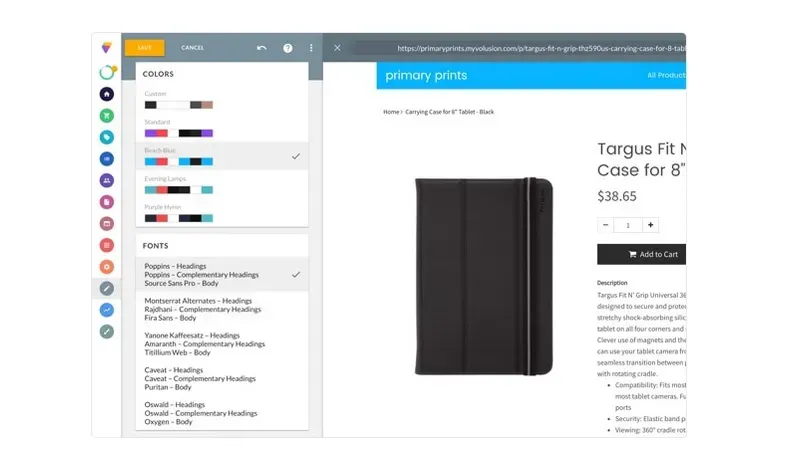
Free templates/themesAll of the templates available on the Volusion platform are free to use. With Shopify, if you choose one of the paid themes, it’s like paying a “hidden” setup fee. You don’t have to worry about this with Volusion.
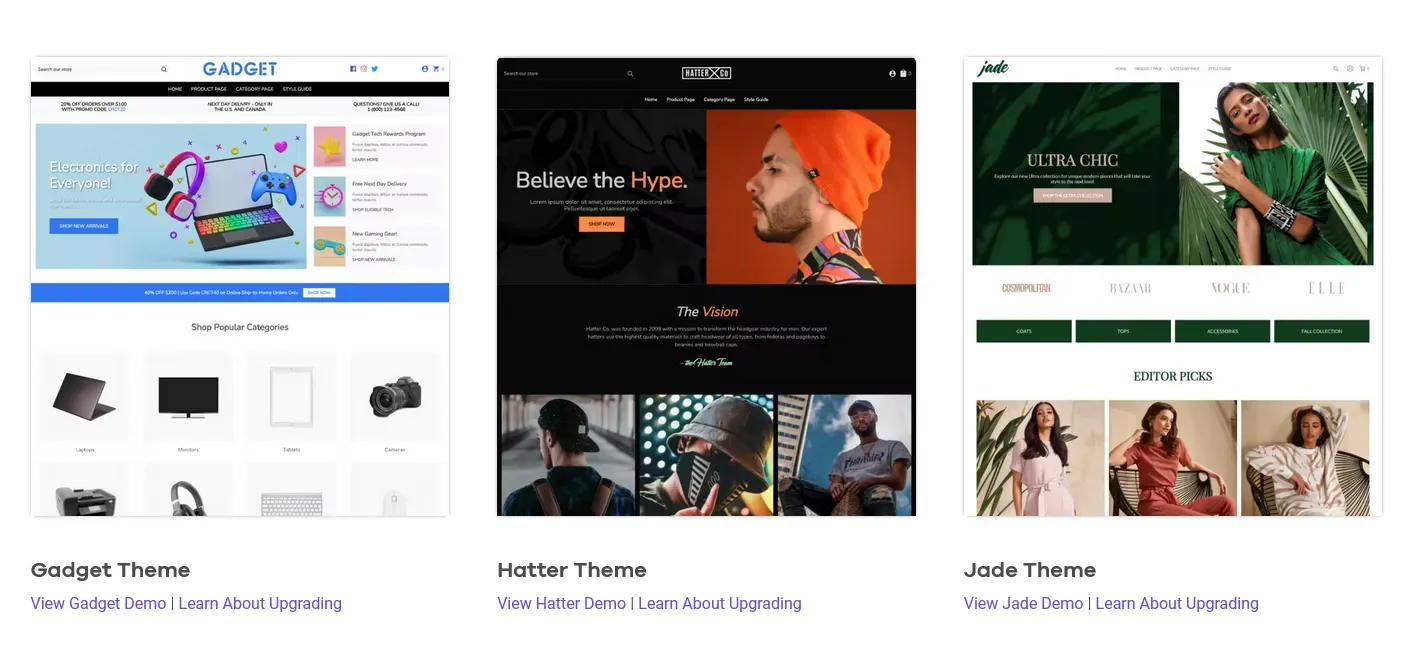
More product options and variantsWith Volusion, you can create unlimited product options (e.g., size, color, style/material) and variants (individual colors, sizes, flavors, etc.)Out-of-the-box, Shopify limits these to three product options and 100 variants unless you use an app (at an extra cost).

Shopify vs Volusion: Customer support
With customer support, Shopify provides excellent 24/7 support by email, live chat and phone (available in most of its main markets) for all plans. Volusion offers easy-to-access online support on all plans but phone support is only available on its $79 Professional plan and higher.
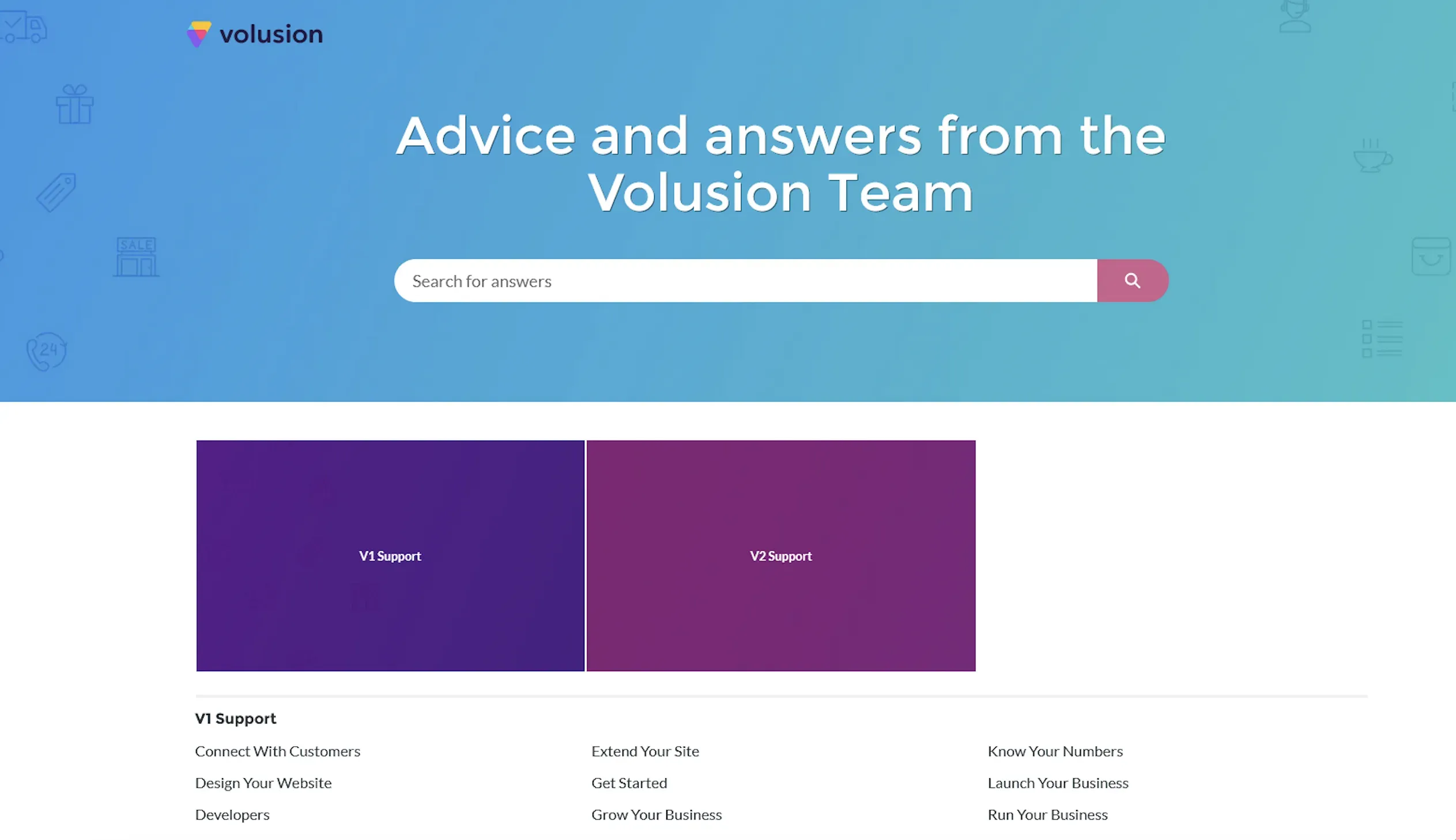
You’re encouraged through the Shopify system to find a solution from its online Help Center resources before contacting support — which may be an annoyance for some merchants.
Shopify vs Volusion: Pricing & Plans
Monthly fees
Shopify and Volusion both charge monthly fees to access the tools to create and maintain your store. There are no setup fees to pay — only the monthly fees.Shopify pricing is outlined in its three plans below (10 percent discount for annual payment):
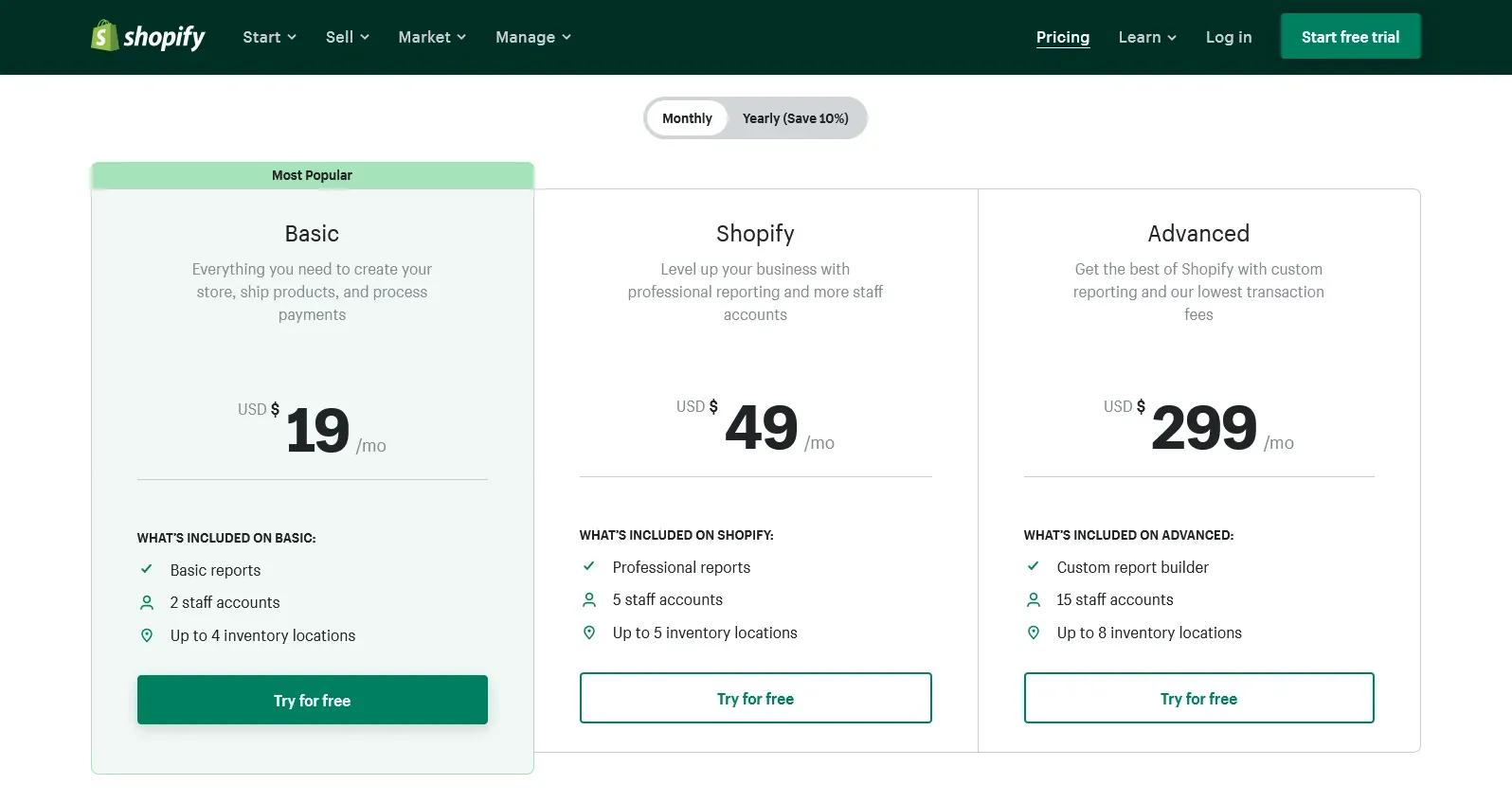
- Basic Shopify: $19/month
- Shopify: $49/month
- Advanced Shopify: $299/month
NOTE: at the time of writing, Shopify’s Basic plan was being offered at $1/month for the first three months.Additionally, Shopify provides alternative plans for beginners and enterprise clients:
- A Starter plan for $5/month that enables a Shopify “buy” button on an existing site or Facebook
- Shopify Plus plan starting at $2,000/month (enterprise clients)
NOTE: at the time of writing, Shopify’s Starter plan was being offered at $1/month for the first three months.Volusion offers the following monthly plans:
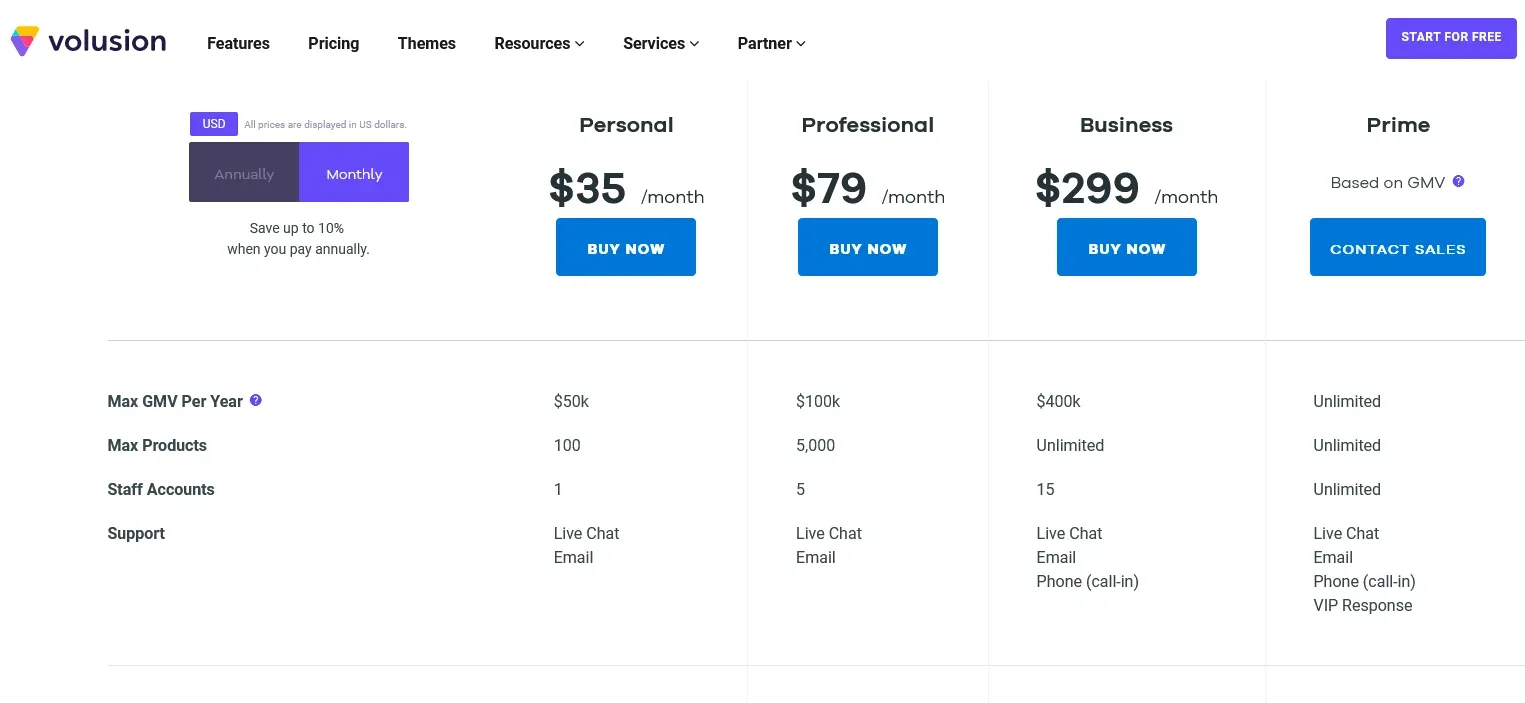
- Volusion Personal: $35/month
- Volusion Professional: $79/month
- Volusion Business: $299/per month
- Volusion Prime: custom pricing
Like with Shopify, you can save 10 percent by choosing an annual plan rather than paying monthly.The entry price point for Volusion ($35/month) is higher than Shopify ($19/month) and includes only one staff account (Shopify offers two in its Basic plan) and 100 products (Shopify provides unlimited products on all of its plans). Volusion pricing also reflects its small to medium-sized business focus with GMV (gross merchandize volume) limits: up to $50,000 per year for the Personal plan, $100,000 for the Professional plan, and $400,000 for the Business plan. If you exceed these limits, you’ll be automatically upgraded.If you have a lot of products, a turnover exceeding $50,000 and/or require access for more than one staff member, you’ll need the Professional plan at $79/month.With Shopify’s $1 offer in place at the time of writing, it’s clearly better value.Volusion does offer custom pricing for enterprise clients, which includes unlimited GMV, a dedicated customer success manager and premier access to new features.Both Shopify and Volusion currently provide a free 14-day trial option.
Additional fees
Shopify currently offers 11 free themes and 100 paid premium themes so you may face additional design fees. This compares with 23 free themes available from Volusion (no paid themes).The free Shopify themes usually require more customizations. The paid themes range from $200 to $330 from Shopify or around $30 to $100 from third-party sites.
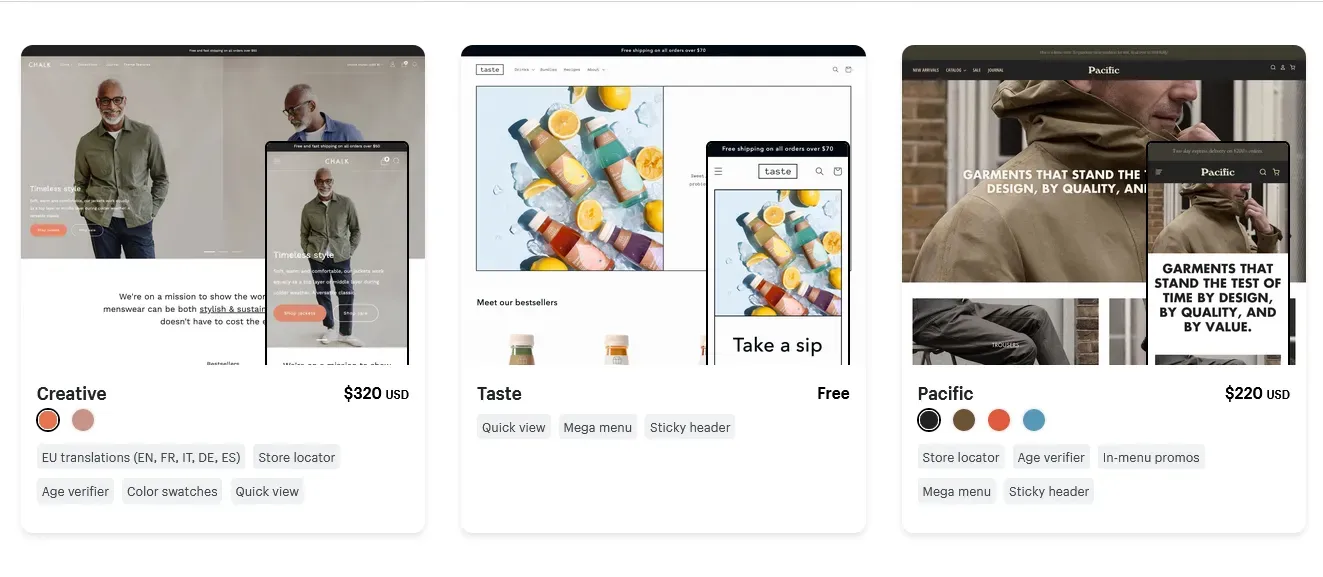
With Shopify, if you use any payment gateway besides Shopify Pay (which is available in 20 countries), you’ll also pay transaction fees between 0.5 percent and 2 percent (depending on which plan you’re on).Volusion offers slightly lower transaction fees. If you use Volusion Payments (which uses Stripe but is only available in the U.S. ), no transaction fees apply. However, alternative payment gateways will incur fees of between 0.35 percent and 1.25 percent per transaction.If you use the inbuilt gateways for Shopify or Volusion, the only extra fees will be the standard credit card fees applicable to your country (2.4 to 2.9 percent in the U.S.)Finally on pricing, bear in mind that if you choose to extend the functionality of your store using the paid apps on the Shopify app store, this will also increase your monthly fees.
Shopify or Volusion for your online store?
If you’re selling products from an online store, Shopify allows you to scale up as your store grows and provides plenty of advanced features for all stores from small startups to major brands and enterprises — wherever you are in the world.Volusion does a great job for smaller and medium-sized ecommerce businesses but is highly focused on the U.S. market and is far less advanced overall with its ecommerce offerings.While both platforms can help you ramp up quickly in ecommerce, you’ll find that Shopify is a more comprehensive option for ambitious entrepreneurs.

Hi, I'm Giles Thomas.
Founder of AcquireConvert, the place where ecommerce entrepreneurs & marketers go to learn growth. I'm also the founder of Shopify agency Whole Design Studios.